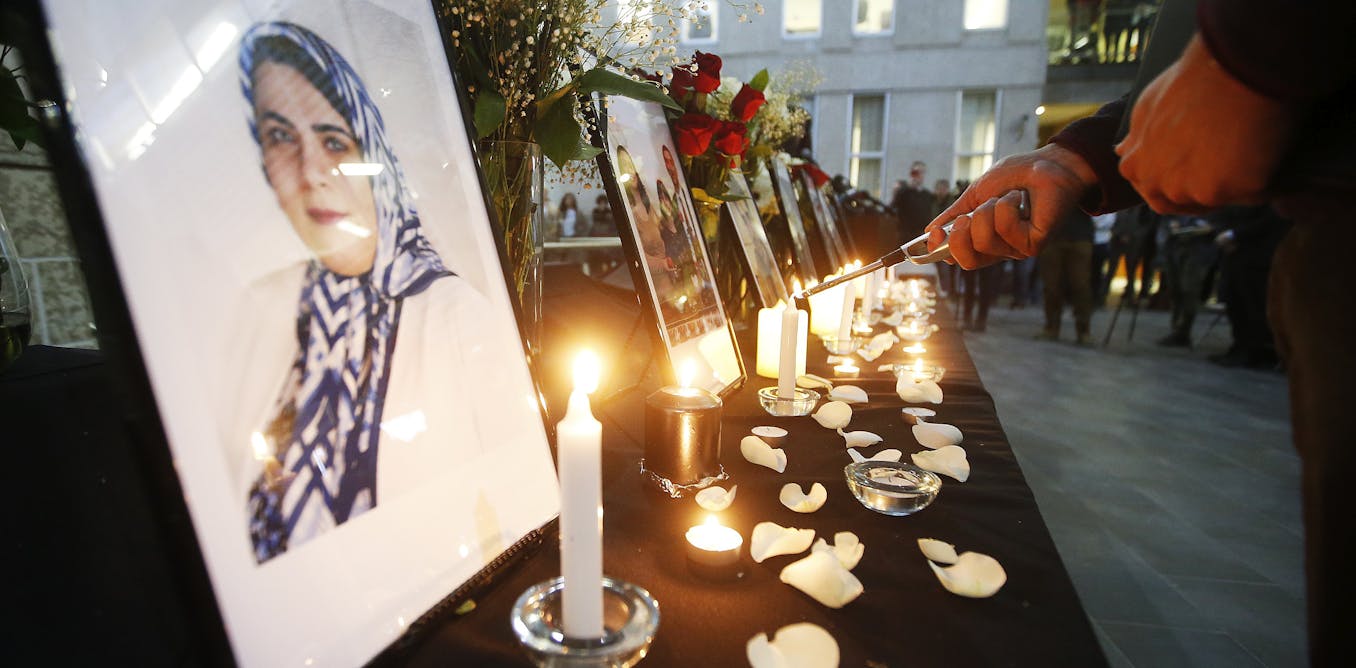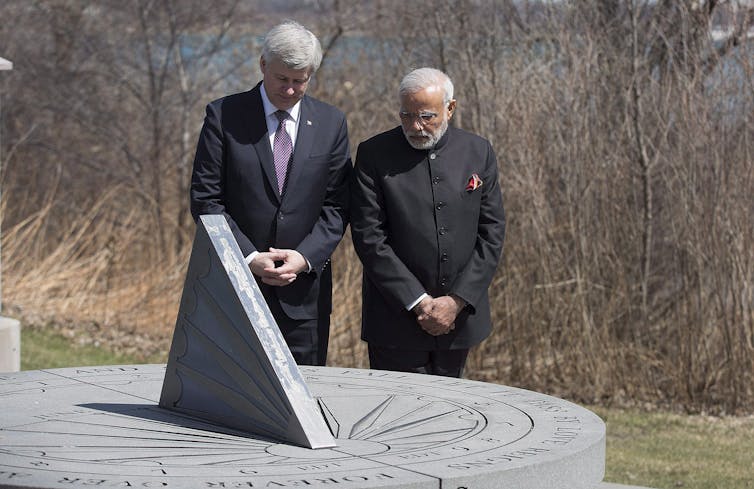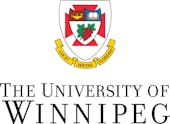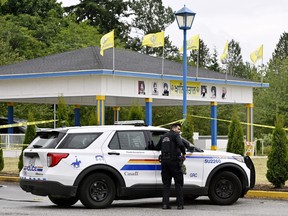 Another cat is out of the bag. And another Pandora's box has been opened by the Harper government. No less than the Air India Inquiry.
Another cat is out of the bag. And another Pandora's box has been opened by the Harper government. No less than the Air India Inquiry.The ex Supreme Court Justice appointed by Harper to conduct a public hearing into the Air India F.U. has discovered that like the Arar Inquiry the State has marshelled all their forces in a united front called National Security.
The RCMP, CSIS, Foreign Affairs, the whole crew of bunglers has blacked out what could be incriminating evidence, refusing the Justice to even preview it in private.
And what could their reason be? Besides being creatures of paranoia, that their secret security state would fall apart if it was revealed how they operate? Or perhaps like bungling Keystone Kops they fell all over each other in jurisdictional sectarianism that meant no one cooperated letting the bad guys get away with murder.
Or perhaps it is more sinister than that.
CSIS specializes in deep cover operations, as they did with setting up the Heritage Front, may have set had an agent provocateur within the cell. Did they in effect create this very cell to keep track of Sikh Nationalist Militants. Did they end up supplying them with the explosives they needed.
It has been done before by the RCMP. Who were also bugging the same cell, and could they be in possession of evidence of CSIS wrong doing?
Again a jurisdictional dispute arises allowing each security division of the State point fingers at each other for their mutual failure to halt an operation they both had under surveillance. Mountie cited Air India threat days before bombing, memo says
We may never know unless Justice Major gets to see all the evidence.
 And if ever there was a case against State Security Laws like the Anti-Terrorism Act that give the police unlimited powers of arrest and detention, as well as the ability to declare operations secret and blacked out, then this is it.
And if ever there was a case against State Security Laws like the Anti-Terrorism Act that give the police unlimited powers of arrest and detention, as well as the ability to declare operations secret and blacked out, then this is it.This along with the Arar case, the Ottawa Citizen Case, etc. etc. is evidence that we have the same old Keystone Kops operating in the same old fashion that the MacDonald Commission on the RCMP identified as the problematic source of their wrong doing and undoing as a secret security force.
Something that the Conservatives fear dreadfully hence their out and out attempt to fabricate links between the Air India disaster and their current attempt to extend the Anti-Terrorism Act. An act that was put in place years after Air India.
How embarrassing for a self declared Right Wing Law and Order government that is demanding an extension of its draconian authoritarian Anti-Terrorism Act being told it is this very act that is halting the Air Inquiry.
Instead the Harpocrites take a page from the Bush White House and their yellow cake from Niger, Saddam has Nukes, falsehoods.
Harper and Co. are now spuriously linking the renewal of the Anti-Terrorism Act with the Air India inquiry, claiming the RCMP need the act to catch the bad guys twenty-five years later, and after a court case freed them because of CSIS/RCMP bungling.

What Justice Marshall needs is open access to ALL Government files from all its agencies involved in the Air India affair. And that demands the elimination of all Official Secrets Acts including the Anti-Terrorism Act that allow the State to cover up it's Keystone Kops agent provocateur's and their incompetence.
“Hegel remarks somewhere that all great, world-historical facts and personages occur, as it were, twice. He has forgotten to add: the first time as tragedy, the second as farce.” Karl Marx
New Math
Why The Tories Want Tory Judges
More Foreign Affairs Incompetency
Statist Anti-Terrorism Act
Paranoia and the Security State
Fascists were CSIS FrontCSIS vs. CUPW
Canada’s Long History of Criminalizing Dissent
Also See:
CIA
Torture
RCMP
CSIS
Arar
Crime
Terrorism
Find blog posts, photos, events and more off-site about:
Canada, anti-terrorism act, Government, Liberals, NDP, Conservatives, War Measures Act, 1970, Arar, terrorism, crime, liberalism, state, statism, libertarian, civil liberties
Air, India,, John, Marshall,, RCMP,, CSIS,, Sikh,












